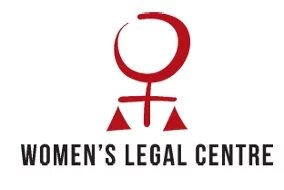
Introduction
On 10 February 2011, President Zuma presented his State of the Nation Address (SONA) to a joint sitting of parliament in Cape Town. The SONA is presented in the evening to enable as many South Africans as possible to watch and listen as the President sets out Government‘s review of 2010 and Programme of Action for 2011. The Government‘s priorities affect all South Africans, the majority of whom are women and girls. The writers of this response to SONA look at the ‗road map‘ set out by Government for the next year, assessing it against progress on promises made (or not made) last year and how this will affect the social and economic status of women.
In 2010 the President promised ―a year of action which will feature an administration that ―knows where people live, understands their needs and responds faster. Women in our society tend to be worse off than men, socially and economically, and more affected than men by poor service delivery. The suggested building of a ―performance–oriented state with the concomitant promise ―to integrate gender equity measures into the Government‘s Programme of Action offered the possibility of a State that is firmly committed to improving the lives of women.
In this response we investigate whether progress has been made regarding the five priorities the President set in his 2010 address, one year earlier, namely:
(1) education and skills development,
(2) ensuring a long and healthy life for all South Africans,
(3) rural development and land reform,
(4) creating decent work, and
(5) fighting crime.
The 2011 SONA pays significant attention to the fourth priority area: job creation. The President confirms the five priorities from last year and says, ―we have done well on these priorities. He explains that Government is concerned about persistent unemployment and poverty and so 2011 will be ―a year of job creation. He goes on to say that, ―all Government departments will align their programmes with the job creation imperative. The integration of gender equity measures in all programmes, including job creation, is not mentioned. Yet women are more likely than men to be unemployed, and more likely to live in poverty than men. The quoted statements seem to elevate the priority of job creation above the other areas or, alternatively, assume that sufficient progress has been made in relation to the other priorities. This particular focus on job creation has implications for women in itself. For example, with the high levels of gender-based violence (one of the highest rates in the world of countries that collect such data) in our society one may argue that fighting crime is equally important to women. Will gender equity in respect of other issues be lost in the rush to create jobs?
Our Constitution visualises a society in which there is substantive equality between men and women. The five priorities are all inter-linked and a holistic approach is required to effect real progress. Progress will not be made unless gender inequities are specifically taken into account.
In his address, the President sets out some of the achievements of Government in 2010, quoting statistics such as 7 000 jobs saved by interventions for firms in distress and 7 000 jobs created by the National Rural Development Programme. The statistics themselves present a problem as they lack disaggregated data on how many of these people were women, which makes it difficult for the writers to assess progress.
The achievements mentioned include the existence of ―well-established institutions that support democracy and the rights of citizens. Unfortunately, the Commission on Gender Equality has been the subject of much controversy due to its dysfunctional operations, which arguably have affected its ability to protect the rights of women. It is later said that, ―our courts continue to function better. The functioning of the courts is of particular relevance to the lives of women as it is women who are frequently the sole caregivers of children (the issue of maintenance) and who are predominantly victims of sexual offences and domestic violence. The failings of the criminal justice system and the high prevalence of secondary victimisation are discussed below in the section on fighting crime. However, it bears mentioning that parliamentary hearings held in 2010 revealed not only widespread failings in the implementation of the Domestic Violence Act 116 of 1998 but also the negative effects of the failure to allocate sufficient budget. The state has also failed to prioritise the obvious systemic failure in the execution of the maintenance legislation, which has not achieved its aims of providing accessibility and expedience to women to hold the fathers of their children to their maintenance obligations.
This response examines each priority area, looking at the available reports, research and statistics to see what progress has been made on what was promised in 2010, the impact of what is planned for 2011, and what the priorities should be from a gendered perspective. We flag things to watch in the future.
Women’s Legal Centre is a project partner of the Regional office of the Heinrich Böll Stiftung Southern Africa http://www.wlce.co.za/
Download the Report
----
Read more about:
- Africa: Video: Engendering Political Leadership
- South Africa: Women in the executive: Can women’s ministries make a difference?
- Africa: The LGBTI Movement and Social Media in Africa
- Africa: The battle for the recognition of LGBTI rights as human rights
- Kenya: Women and Political Leadership in Kenya: Ten Case Studies
- Nigeria: Nigeria's Electoral Reform And The Prospect For Women's Participation In The 2011 Elections.
- Africa: Struggle for equality: Sexual orientation, gender identity and human rights in Africa
- back to overview Women´s Voices Women´s Choices